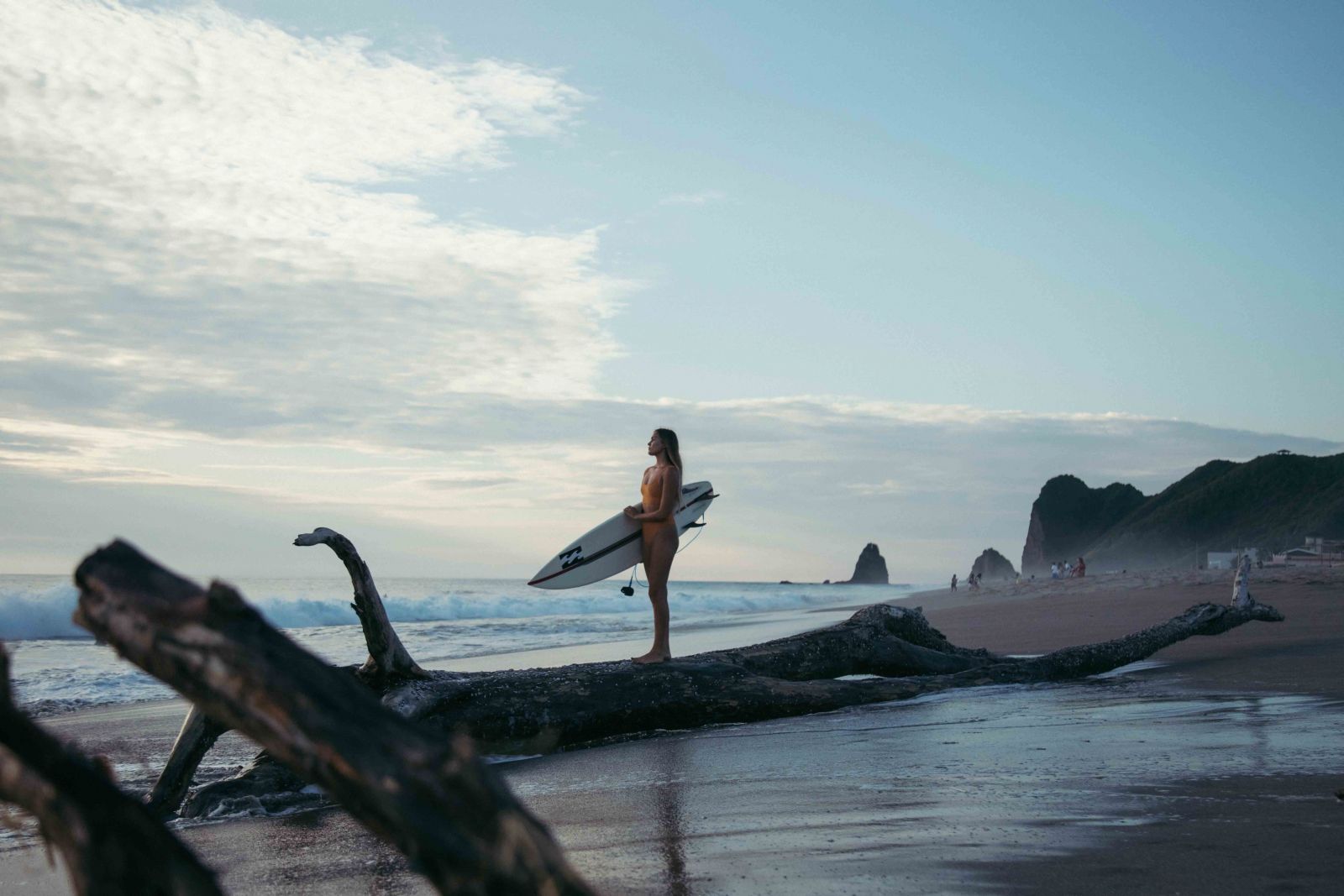-
Télécharger
Billabong App
Tout l’univers Billabong dans votre poche
-
Se connecter / s'inscrire
BILLABONG CREW
Livraison et retours gratuits pour les membres
We sat down with Pacha to ask her a few more questions about her first home of all, and one that continues to shape her—Ecuador.
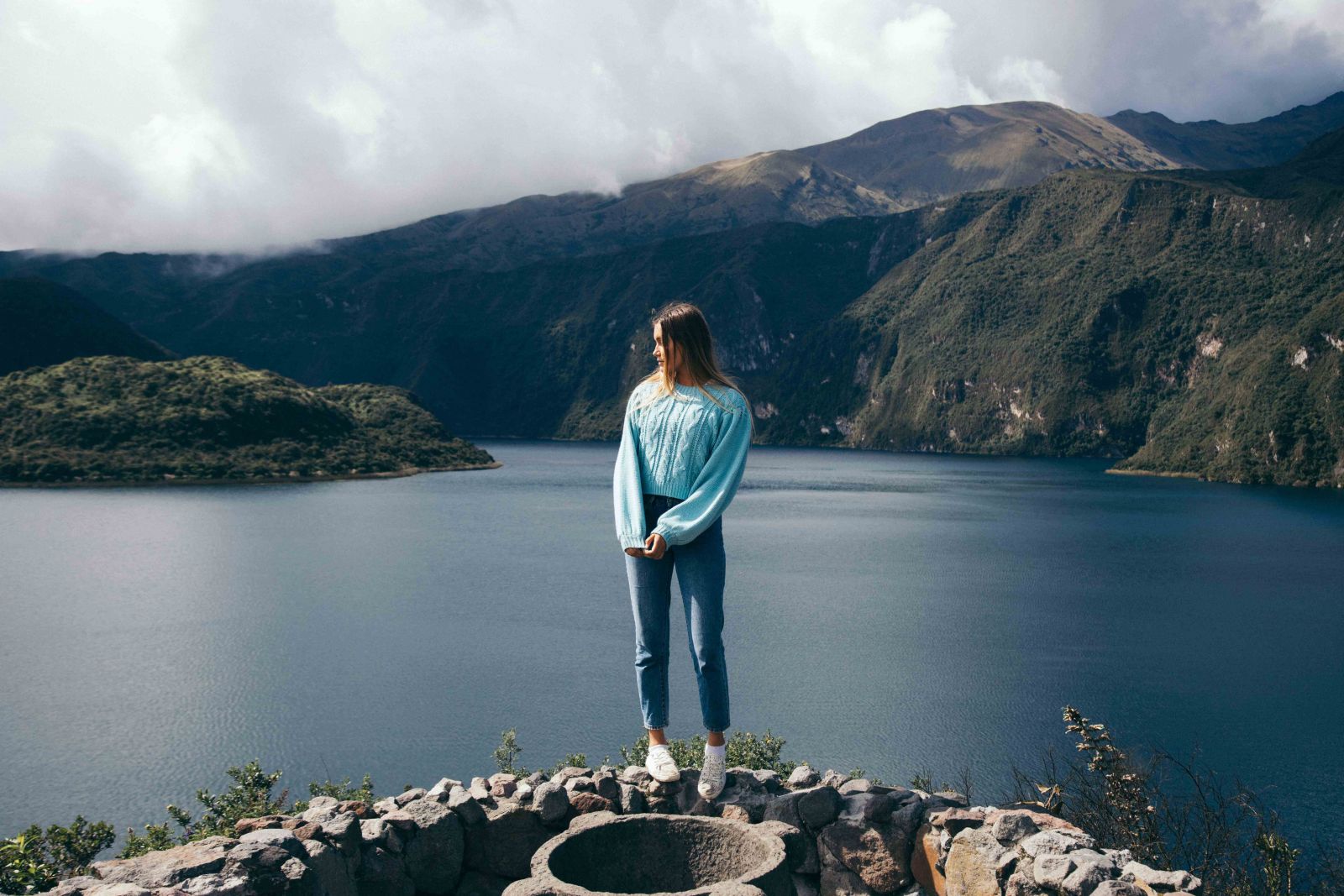
- How has Ecuador helped shape your connection with nature, specifically the sea?
Ecuador is an absolute treasure of life and diversity. Being born and growing up there put nature/Pachamama as the centre of my identity. It's the feeling and the essence I'll always come home to. When my mother was pregnant she visited the sacred lake Cuicocha, a volcanic crater at the base of the mountain, Cotacachi, and brought some of that water, along with water from the ocean for blessings at my birth - understanding the continuous flow of water that is life - and that's within us all. As I got older, I realised that connection and the sacred balance throughout nature. Growing up we were always surrounded by forests, by rivers and by the ocean- we played with respect and understanding that we were tiny compared to the energy of nature. And we were continually reminded that we are part of the nature we are here to protect and regenerate. I remember Mum bringing me out deep into the ocean into the waves when I was a tiny little girl, and she/we always felt pure joy and exhilaration, not fear. I think that's a feeling that's stayed with me too. Respect for the ocean and its power, but joy over fear...
2. What are some aspects of Ecuadorian culture that you feel you carry with you strongly?
I guess my name is the biggest reminder I'll carry for life! 'Pacha' comes from the Quechua culture of my birth place, and links me forever to not only that place and culture, but to its meaning. The communities and people we lived and worked with when I was growing were all deeply committed to protecting the nature around them - from the mountains to the sea, where my Dad was always in the frontlines of campaigns to protect coastal life, from mangroves to sea life, to the fragile coastal dry tropical environment. Experiencing these places firsthand means you can never really forget them - they are literally part of you and protecting them is as natural as breathing.
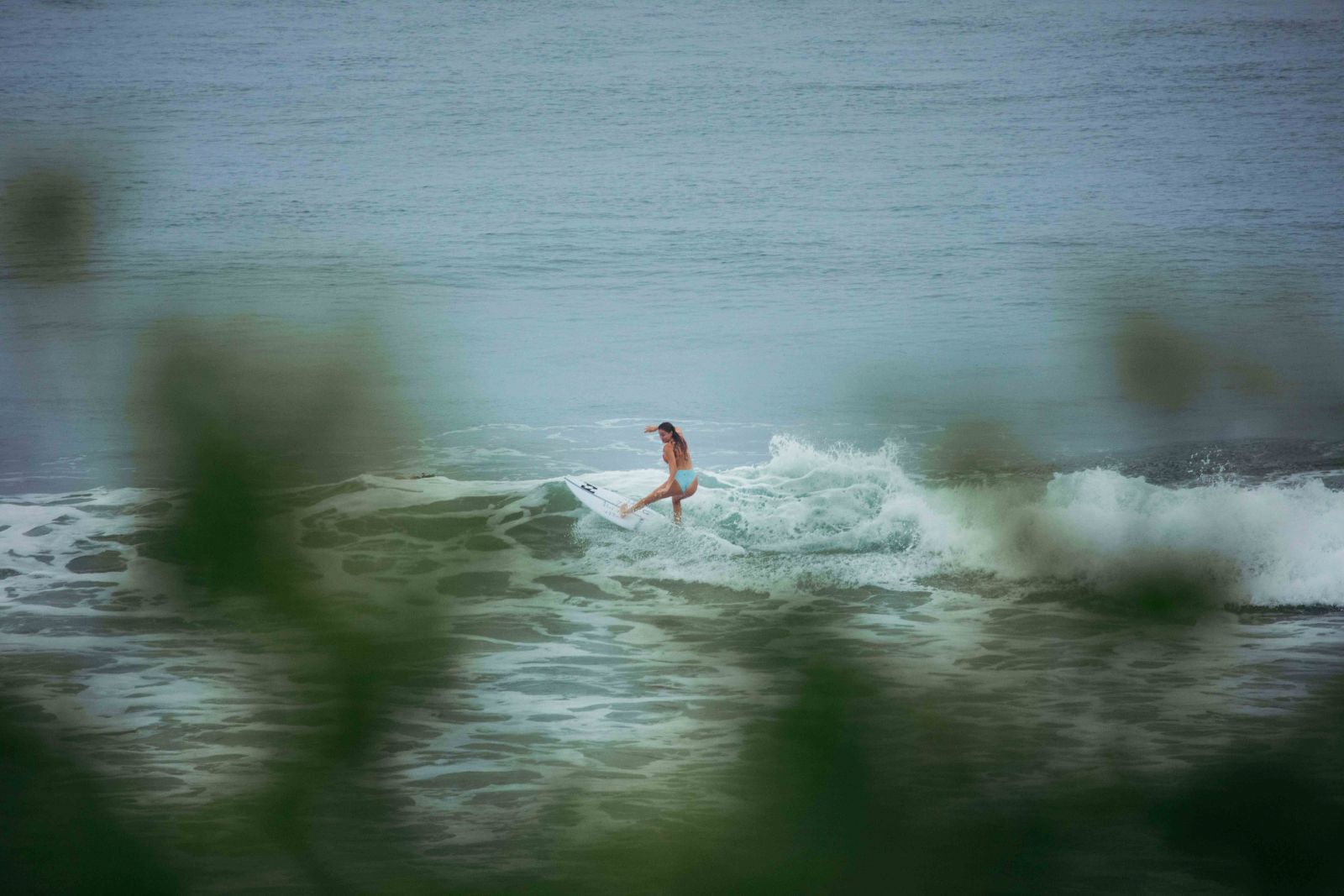
3. How has surfing in Ecuador changed through the years as you’ve grown up? Are there more women in the water?
I was 12 when I first surfed in Ecuador. I returned to visit my family in the coastal town of Bahia and rented out a battered up board. I was the only girl in the lineup! The community stood on the shoreline an hooped and hollered encouragement to me and my little brother, who was probably the youngest kids they’d seen tackling the waves! There had always been surfers around (there are some amazing waves in Ecuador), but finding boards, or any other equipment, like wax, was really difficult. I remember my dad tried to convince us that candle wax was fine and we dripped it all over the boards just to find ourselves slipping and siding on our attempts to pop up! 5 years later we returned to the coast to find the surf culture had really blossomed - there were little clubs in Bahia and neighbouring town Canoa, that not only encouraged surfing, but supported beach cleanups and reforestation and really encouraged girls to get involved too. And on the WQS I met the one legend Ecuadorean female surfer, Dominic Barona, who's also passionate about promoting surfing.
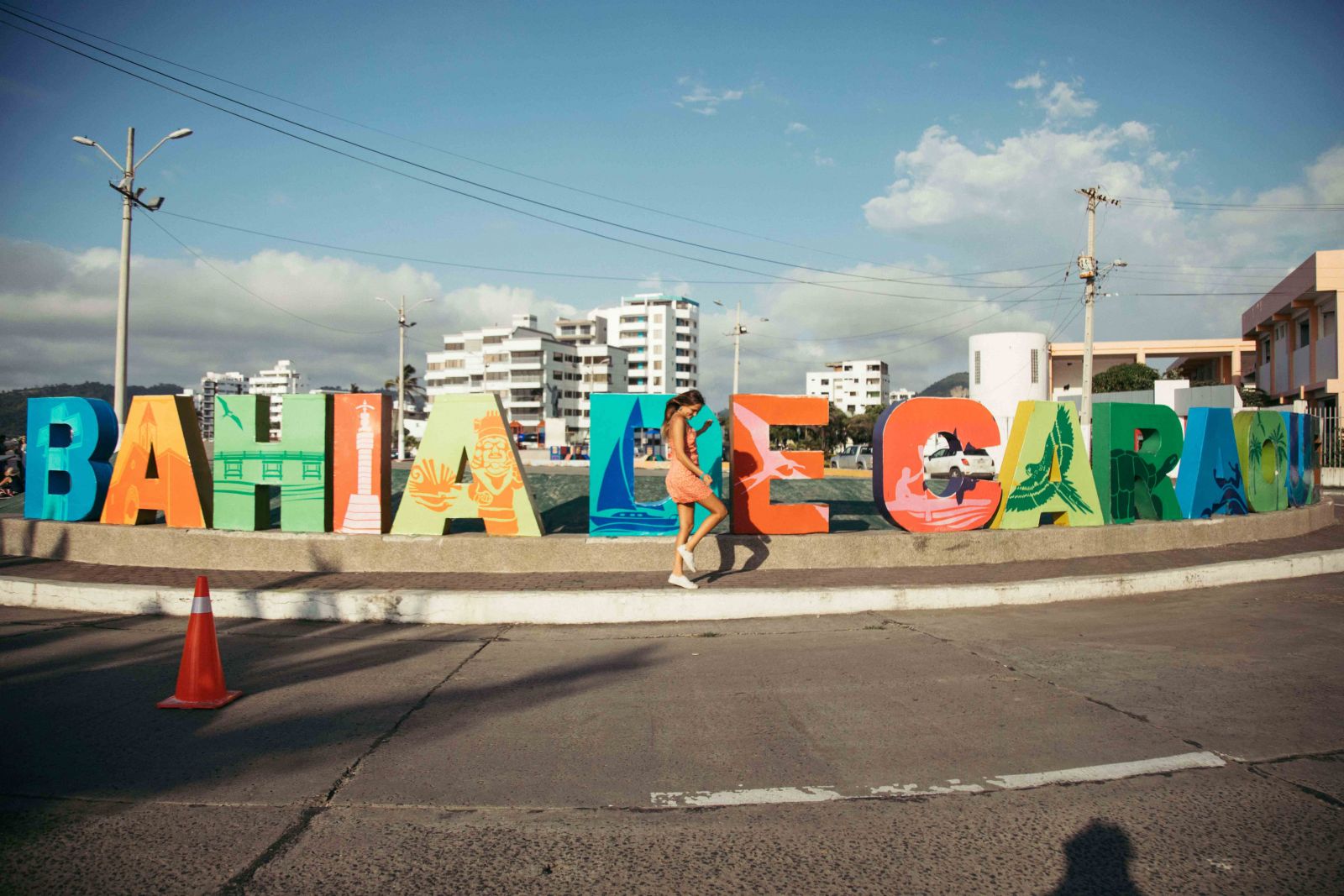
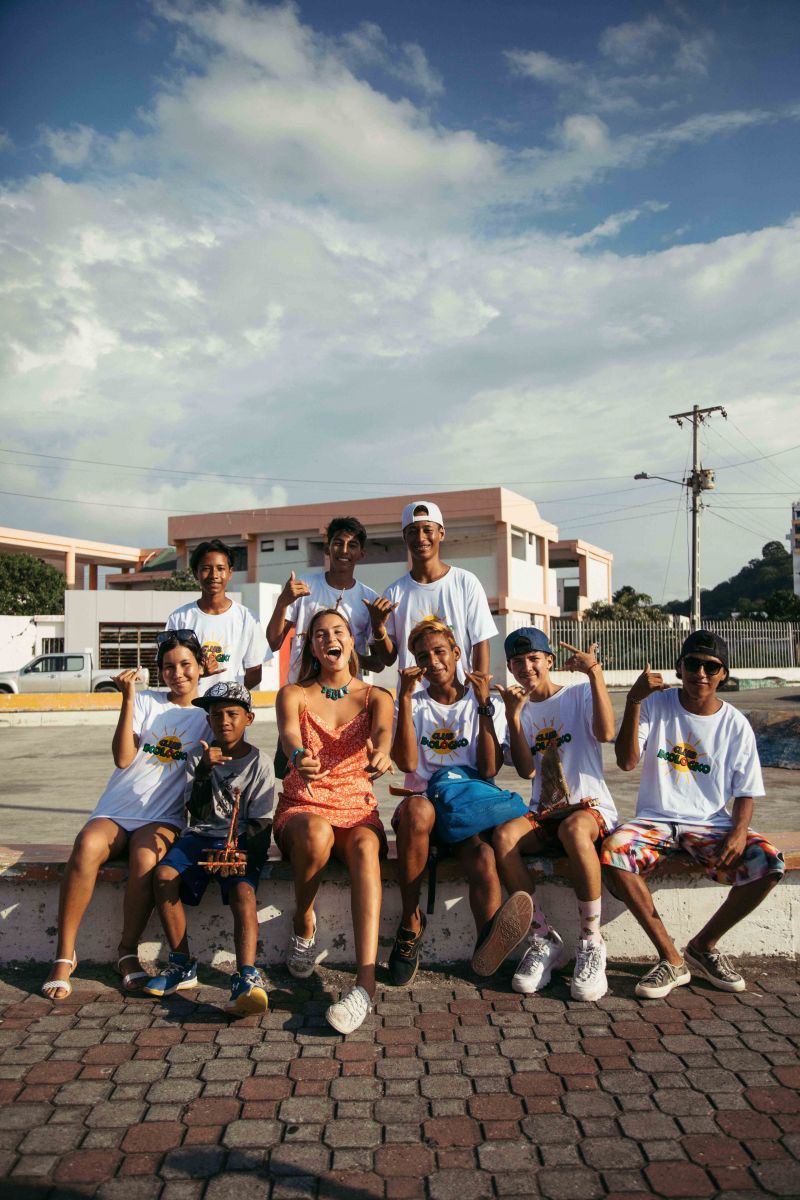
4. What are your hopes for the next generations of surfers in Ecuador, specifically in your family’s coastal community of Bahía de Caráquez?
Some of my dreams are already coming true! When we returned this year we were amazed to see a new club teaching kids to shape and repair their boards amd the local Mayor proudly supporting these initiatives. Every club and every surfer understands the need to protect the ocean and the coast that brings them so much joy. And as more people are gaining the confidence to get into the ocean, surfers are starting to be seen as the protecters and guides to understand the ocean and be safe in the water. My hope is that surfing grows as a gateway to a stronger connection with life and hope, especially when life can be so tough in places like Bahia facing the effects of multiple earthquakes and poverty. The ocean is there for everyone.
5. How can travelers to Ecuador try to make a difference when they are there?
Find out as much as they can about the community groups making a difference and see if you can connect with them (there's a list of some contacts here. And there are some great volunteer programs running throughout the country too - stay as long as you can to really learn and connect with the country. Bring along some surf extra equipment to give away if you can - the local surf clubs appreciate this so much!
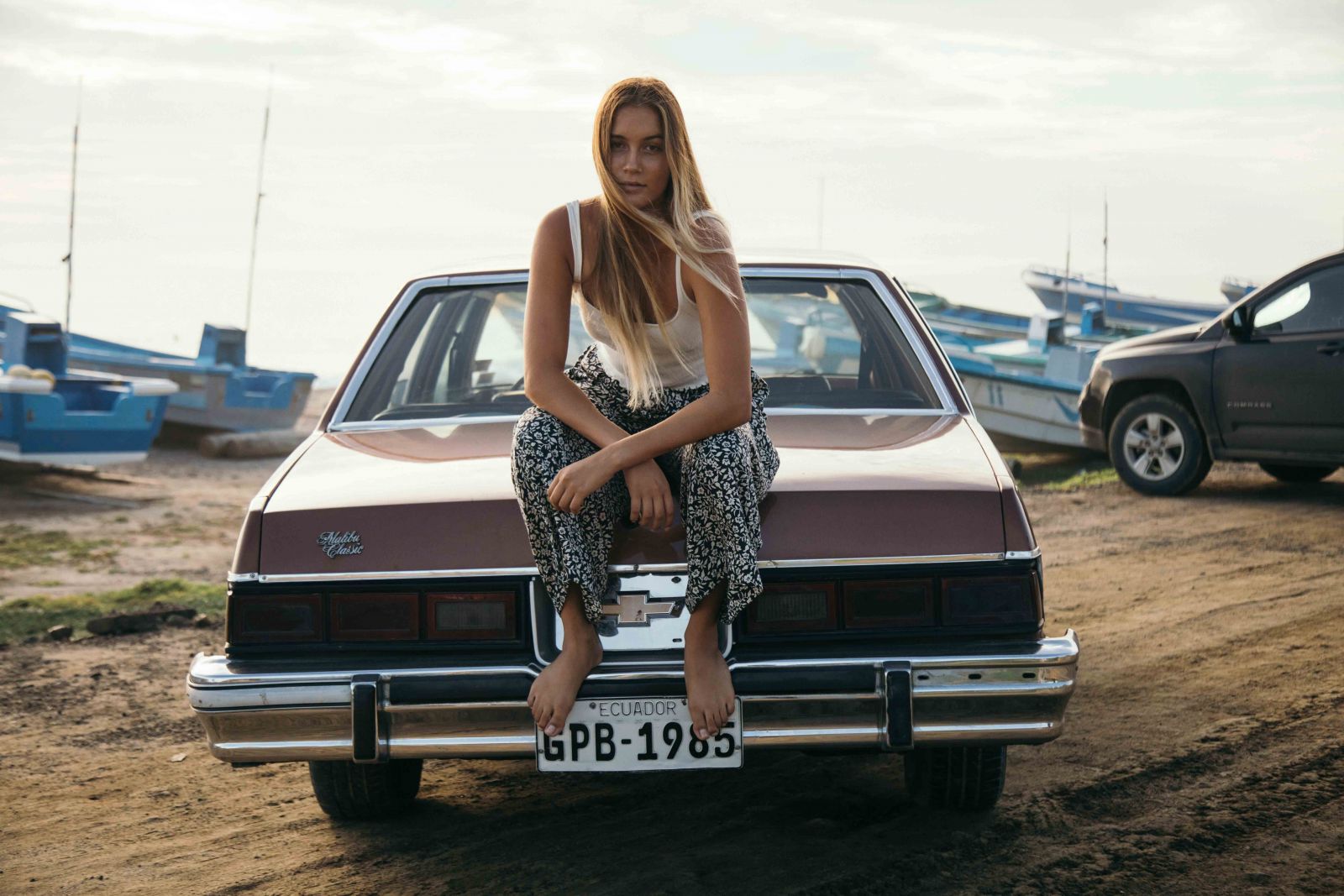
6. If you could share one thing about Ecuador with people, that you think they might not already know about the country, what would it be?
Ecuador is one of the most bio-diverse, climate diverse and culturally diverse countries on the planet. You can be in the mountains 2000 m above sea level, eating beautiful local food and seeing alpacas and even the snow… The next morning you could be on the coast eating fresh seafood ceviche sweating from the heat and hanging at the beach with a whole another culture. From mangroves, to dry tropical forests, to cloud forests, to the amazon rainforest - even the treasure of the Galapagos islands are part of the tiny country of Ecuador!
And not many people know there are thousands of kilometres of coastline with untouched beach breaks and point breaks to discover.
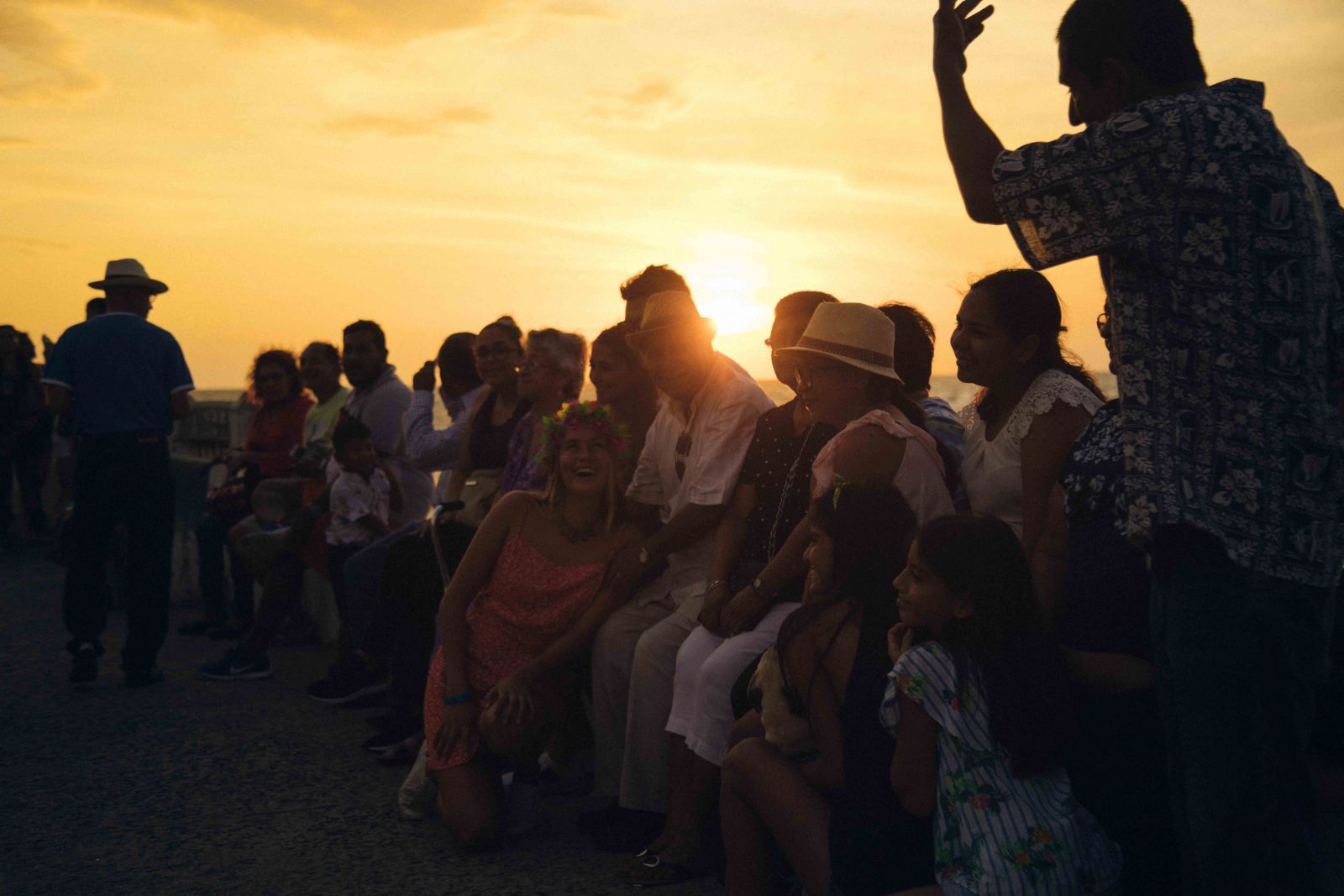
7. Your parents met in Ecuador working on advocating for environmental issues in the country, and you’ve also made eco activism an important part of your life—do you have any future plans or goals of how you will carry on this practice in Ecuador?
Absolutely yes!
There's never been a more important time to protect and regenerate the earth, nurturing a culture and way of life that makes this a priority. I'm going to keep supporting the projects we've shared as part of the 'Home' project as best I can - especially when travel becomes possible again. Recently, I've also been invited to work with the Ecuadorean government to protect endangered sharks off the Galapagos islands from the rampant industrial shark slaughter (especially for their fins), that's getting worse every year. Like every part of nature, sharks are vital in keeping the whole ecosystem thriving. I hope this is the beginning of a big shift in Ecuador (and the world), where every precious part of nature is valued beyond quick profits.
